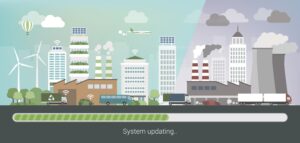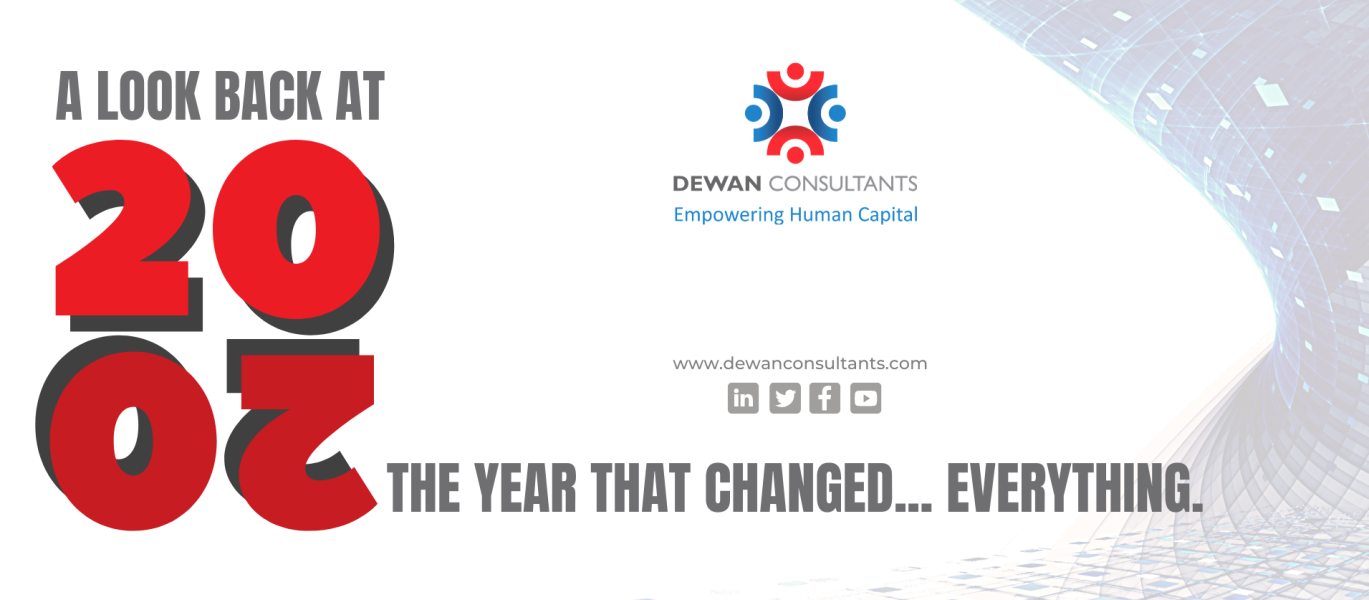 February 15, 2021
February 15, 2021

The COVID-19 pandemic has exposed fault lines, fissures and fragilities in societies and economies across the globe, unanimously. And, in that, the Arab coalition is no exception.
Because of the novel pandemic, the regional economy has obviously suffered multiple shocks such as sharp declines in oil prices, remittances and tourism.
With due diligence to the severity of the pandemic, one must also realize that, despite the prevalent fear from the constant notifications of stats on our smartphones, the world has indeed advanced since the 1920 Spanish flu and this isn’t 2008.
The Arab region, in particular, is blessed with tremendous diversity, vision and potential as most countries in the region have a national rapid response mechanism for timely investigation and response to public health threats. Early warning surveillance systems are in place in most countries, especially those experiencing complex emergencies.
Despite the odds, the primary focus, since the wake of the novel Coronavirus, has been channelled to saving lives and providing medical treatment to all, free of discrimination and irrespective of legal or migratory status, as well as providing targeted measures to protect the most vulnerable groups. And that in itself is commendable.
Beyond the immediate emergency, the response to COVID-19 provides an opportunity to undertake structural reforms of public health sectors, particularly in building capacities, investing in facilities and equipment, and focusing on full coverage of health-care systems to provide integrated health services, including prevention, primary care and better planning for potential future pandemics.
In addition, the recovery could also be used as an opportunity to lay institutional foundations for sustainable development, including through information-sharing and a whole-of-society approach.
We’ve put together a comprehensive list of key focus areas, which will be prudent to trigger re-emergence moving forward.
Re-Imagining a Sustainability-Fuelled Future

Investments in green, innovative, circular, low-carbon economic sectors, could place sustainability at the heart of decision-making and chart a path to economic diversification while reducing the effects of price fluctuations linked to fossil fuel.
Switching expenditures from fossil fuel subsidies and military spending by itself could release substantial resources, which would contribute not only to human capital but also to renewing a frayed social contract, caused in part by a lack of regional social and economic mobility. This calls for a human and earth’s-rights based approach.
Solar technologies have a key role to play, including for vaccine production and storage and to help bridge the energy access gap. In one of the most water-scarce regions globally, with a record-high dependence on food imports, it is vital to increase the sustainability and productivity of agricultural systems and invest in rural development.
For example, more solar panels could be produced in the region, and neighbouring countries could turn to each other for food imports, boosting regional trade. Expanding the internet and other IT infrastructure would stimulate social and economic activity.
Education Reimagined

Promoting a new vision for education that meets the ambition of the Sustainable Development Goals (SDGs) is about lifelong learning, critical thinking and innovation, as a centrepiece of the recovery from COVID-19. If the Arab region, holistically, could invest more fully in its young people, giving them the tools and the freedom to devise solutions, including skills and jobs.
We’ve already witnessed the United Arab Emirates, as a prime example in innovation and tech, with its programmes to steer the next generation of leaders toward careers in STEAM and STEM subjects, with grants and innumerable scholarship opportunities while also promoting gender equality.
Economic Regeneration programmes could promote the manufacturing of sanitary and medical equipment and basic construction materials. Reconstruction programmes could build and upgrade water-recycling plants and distribution networks, manufacture farming equipment, build better transport links, invest in fisheries and develop solar energy technology.
For such restructuring to be feasible, governments would need mass public buy-in. The first step to achieving this would be to provide cash transfers to the most vulnerable groups, to avert a humanitarian disaster and ensure health, security and safety. Then there needs to be a clear focus on skills, especially for women and youth and providing government support for start-ups and entrepreneurial activities.
Some communities are especially hard hit — including women, migrants — who represent 40% of the workforce — and the 55 million people who already rely on life-saving humanitarian assistance.
Revisiting the Coalition and Evolved Bilateral Trades

Looking further ahead, governments have the opportunity to cooperate in ways that complement each country’s advantages and boost regional links. Disruption to global supply chains offers a chance to rethink what can be produced where, by whom and most importantly identifying what’s available to us, at the shortest time possible.
Plans for recovery could address inequalities in income, health, education, affordable housing, resilient and sustainable cities, with the SDGs as a framework for recovery. Recovering with the SDGs in mind is about reducing inequality and leaving no one behind.
This includes reducing inequalities between urban and rural areas, different age, income and social groups, regions at the subnational level, women and men and girls and boys. Ongoing efforts to end all discrimination on the basis of gender, age, ethnicity, social origin, religion, political or another opinion, location, disability and migratory status and sexual orientation or gender identity need to be stepped up.
Investments could be increased in critical areas of human development, including universal health coverage, affordable education and social protection floors and old-age pensions, not only to mitigate the impact of COVID-19 but also to foster long-term and sustainable development. National youth strategies could be revised to ensure greater inclusion and participation, youth reintegration into the education system and the job market, and new forms of remote formal and informal education, training and vocational capacity-building. In education, for instance, the region could attain the world average in mean years of schooling by increasing public education spending by 1% of GDP over the next six years.
Where one country lacks the resources, other countries from the region can step in. The region needs the capacity not just to use technology but to produce technology, including tests for viruses and vaccines, and to be part of global scientific efforts to address this and future crises.
Design Fiscal Policies to Promote Economic Transformation, Support SMEs and Retain Talent

First, economic sectors that add significant value to the economy, in terms of both productivity and manpower and have strong potential to generate opportunities and favourable integration in global value chains, such as higher-end services and industry, should be encouraged. These are not passing, replaceable ideological concepts, but rather the cogs in the wheel that keep the engines turning.
This could promote the diversification of regional economies and create the catalyst for a more competitive and productive private sector.
Equitable investments could be made in innovation, inclusive human capital and infrastructure that contribute to greater productivity. Countries could provide equitable employment opportunities to women, increase investments in education, and support youth-led ventures and solutions to capitalize on young people’s talents and innovation. Aligning monetary, trade, industrial, environment and climate policies could accelerate the pace of transformation, and sustain it over time. Regional integration and more optimal global value chain integration are also opportunities, building on long-standing regional trade and integration agreements.
Overall, the recovery from COVID-19 is an opportunity to reimagine the economic and development model in the region and to create more sustainable consumption and production patterns. 8. Increasing tax revenues without imposing higher taxes on goods and services that burden the middle class and the poor could be considered. Expanding and sustaining the fiscal space by raising and diversifying revenues.
Equitable expansion of fiscal space could be achieved through measures such as a wealth tax, capital gains tax and progressive income taxes, as well as improving tax compliance to enhance the tax sharing burden between the rich and the poor. Such measures could deliver multiple benefits, providing more resources for social protection, propelling economic reforms and human capital investments, lessening inequalities and shielding revenue streams from shocks, such as oil price fluctuations. For oil revenue-dependent economies, diversification of revenues is needed. For all Arab economies, expansion of the fiscal space could occur with minimum borrowing, while maintaining strict sustainable debt management strategies and practices. Financing for development principles can guide such reforms.
Conscientious Funding

A regional social solidarity fund to support the poorest and most vulnerable groups and countries could help countries access sources of financing with a limited bearing on their indebtedness and could help countries in the region target the poorest to address health emergencies, provide relief during food shortages and also help Small and Medium Enterprises stay afloat, particularly those that contribute to health, food, and basic economic activities. The region could finance the fund by introducing, where appropriate, a social solidarity tax that is rooted in the well-established Zakat practice.
There is a real opportunity to raise revenues to finance poverty reduction through this tax, given that the wealthiest 10% of adults account for $4.4 trillion of household wealth in the Arab region.
While such a fund requires a broad-based political consensus, it could be facilitated by reforming tax administration, ensuring regular filing and improving collection, including a one-time settlement of long-standing overdue taxes while strictly combating tax evasion.
Despite the ravages of COVID-19, by developing local production, countries can create jobs and boost income in a way that promotes both national interests and regional stability.
Arab leaders have the chance to opt for win-win relationships, turning structural weaknesses into opportunities for sustained recovery for the benefit of all.
About Dewan Consultants
Since inception, our unique blend of understating needs, talent management and commercial understanding, offers a complete people management and hiring service. We provide flexibility and access to top-calibre professional HR Advice. Over the years, we have been by recruiting the best talent from countries across the globe.
India, Pakistan, Nepal, Burma, Bangladesh, Sri Lanka, Philippines, Indonesia, Vietnam, Thailand, China, Jordan, Syria, Lebanon, Egypt, Tunisia, Morocco, Kenya, South Africa, Lithuania, Romania, United Kingdom to name a few.
From sourcing to screening to interviewing and immigration, we have perfected the art of getting the right talent to the destination country seamlessly. Presently, we are one of the world’s foremost Indian human resource providers. With our in-depth knowledge, insights and expertise in the talent business, we are on a path of becoming a name to reckon with.










